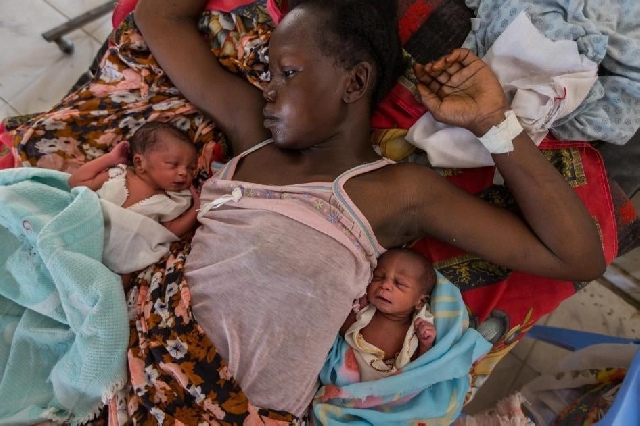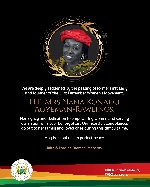Ending child marriage — Beyond hashtags and promises
 Child marriages on the rise in Ghana
Child marriages on the rise in Ghana
Child marriage is one of Ghana’s quietest crises.
It doesn’t always make the headlines, yet every year, thousands of young girls are forced into unions that strip them of their freedom, education, and future.
Behind every statistic lies a childhood interrupted, one of a girl whose dreams are replaced with domestic responsibility and early motherhood.
Despite laws, advocacy, and international commitments, child marriage continues to thrive, especially in rural and impoverished communities.
The Children’s Act of 1998 clearly sets 18 as the minimum legal age for marriage, but weak enforcement and cultural acceptance make the practice hard to eliminate.
For many families, early marriage is seen as a way out of poverty or a means of preserving honour.
But what we rarely discuss is the long-term damage not just to the girls, but to society as a whole.
When girls are forced into marriage, we lose future teachers, doctors, entrepreneurs, and leaders.
“We cannot claim to be building a better future while selling off the dreams of our daughters.”
The conversation around child marriage often resurfaces only when a tragic story breaks out or when activists launch new campaigns.
Yet the problem runs deeper than social media trends or government press statements.
It is embedded in our values, our silence, and sometimes, our misplaced sense of tradition.
The fight against child marriage is not just about enforcing the law; it’s about transforming mindsets.
Chiefs, pastors, parents, and teachers are not just policymakers but must be a part of this cultural shift.
When a community collectively decides that a girl deserves to finish school before marriage, progress begins.
Ghana has made progress through programmes led by the Ministry of Gender, Children and Social Protection and partners like UNFPA and UNICEF, but implementation remains inconsistent.
In some areas, the lack of shelters, social workers, or community education campaigns leaves girls vulnerable.
Education remains the most powerful tool to end this cycle.
A girl in school is less likely to be married off early.
A girl who understands her rights is less likely to accept abuse disguised as tradition.
And a society that values its girls as equal partners in progress will never tolerate child marriage.
We cannot continue to treat child marriage as a seasonal conversation.
Every time a girl is forced into marriage, Ghana takes a step backwards.
Ending this practice must go beyond hashtags and slogans.
It must become a national moral duty.
Because no country can truly rise while half its children are held down by silence, poverty, and outdated customs.
Trending Features

Beyond A and B schools: Addressing educational inequality through political reform
18:30
Why V. L. K. Djokoto could be Ghana’s future
17:37
Fighting a silent killer: How vitamin C could transform triple-negative breast cancer outcomes for young African women
15:38
Technology meets tradition: How smart health is trying to deal with diabetes
11:51
Nana Konadu Agyeman-Rawlings, the catalyst for women’s empowerment in Ghana
12:44
British-Ghanaian lawyer Bianca Akweley Clinton marks 20 years at the Bar
19:02
The death of critical thinking and the rise of collective stupidity as an existential threat
08:32
Cybersecurity and Constitutional Order: Why ILAPI calls for redress before Ghana’s Cybersecurity (Amendment) Bill becomes law
23:32
Cedi at 60: What you need to know about Ghana’s legal tender
15:04
From shells to screens: Experience 60 years of the Ghana cedi in augmented reality
10:38




